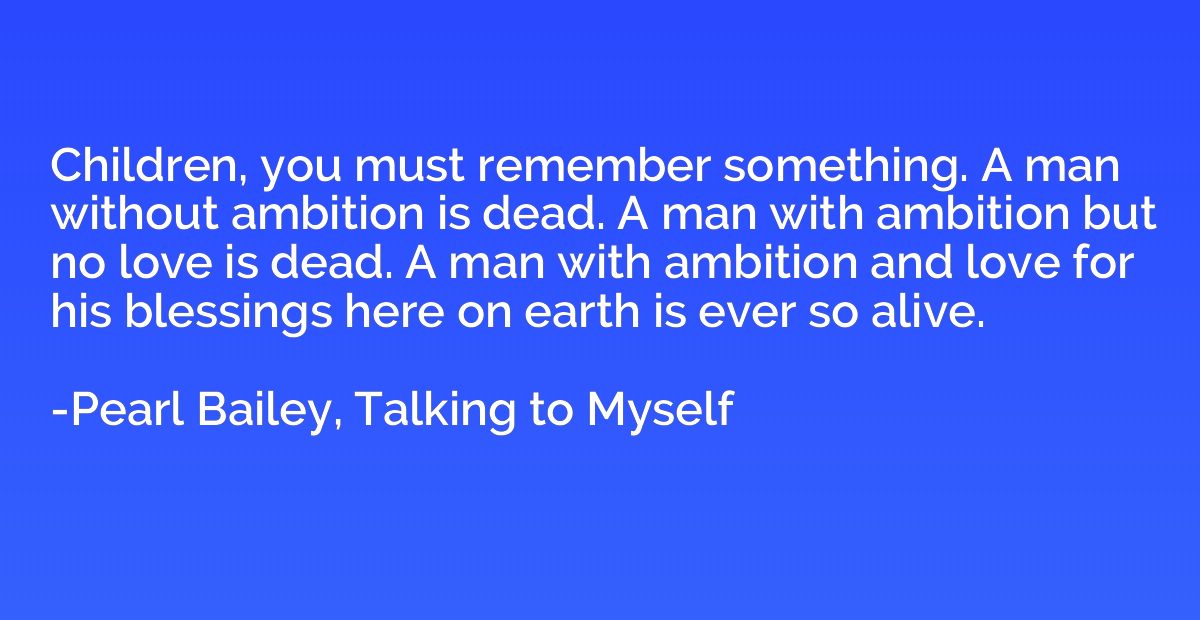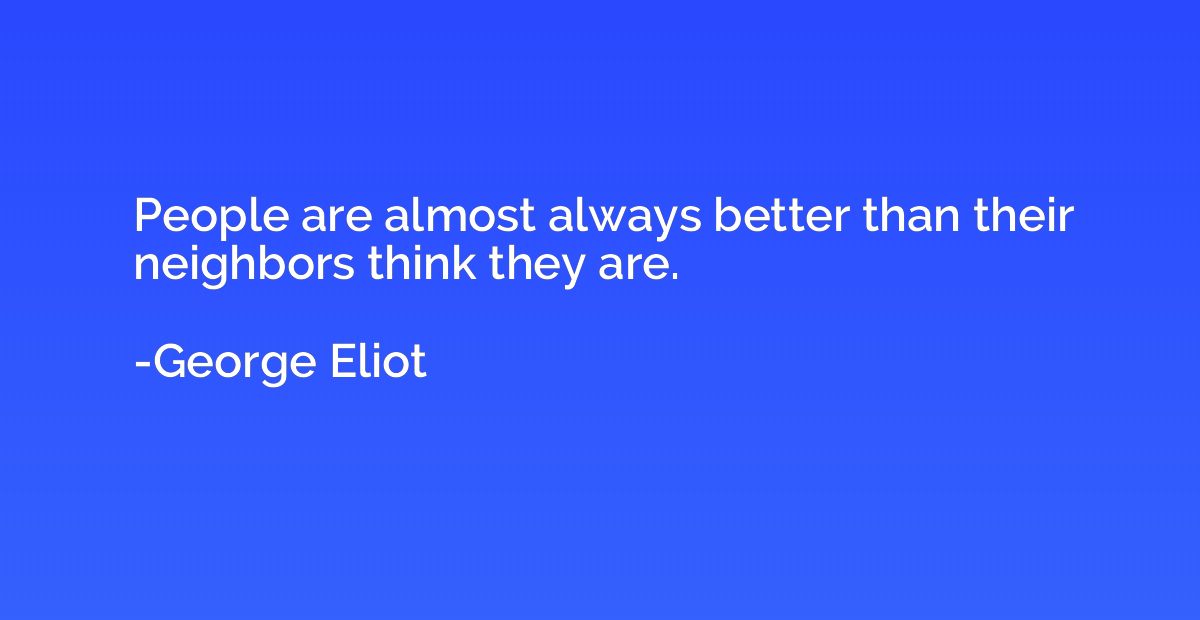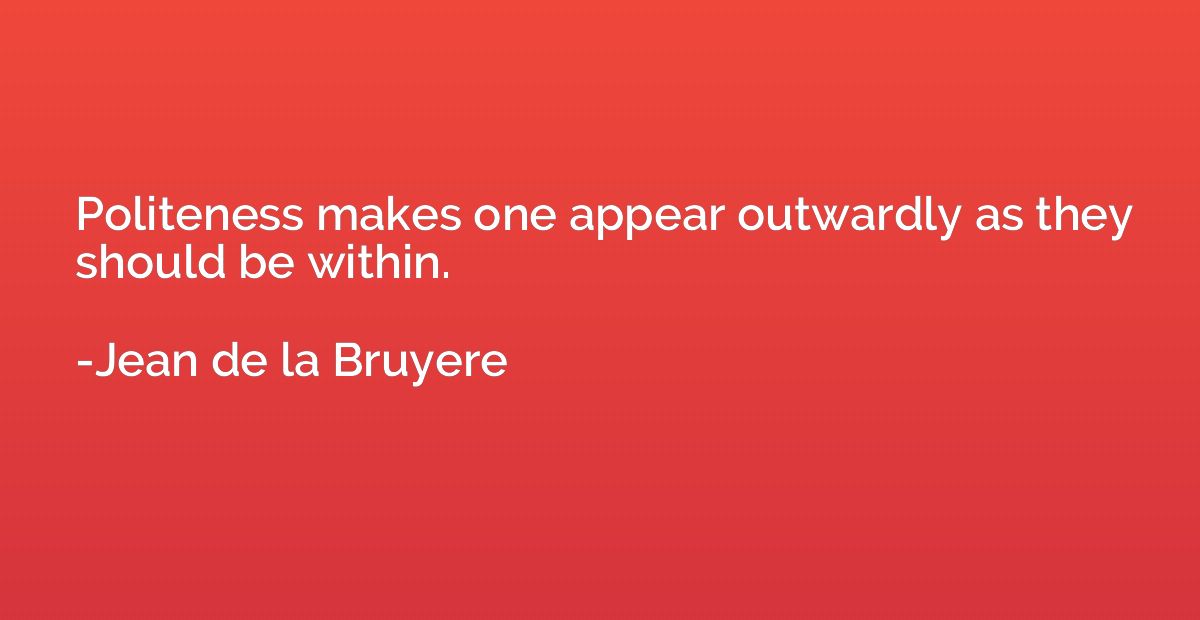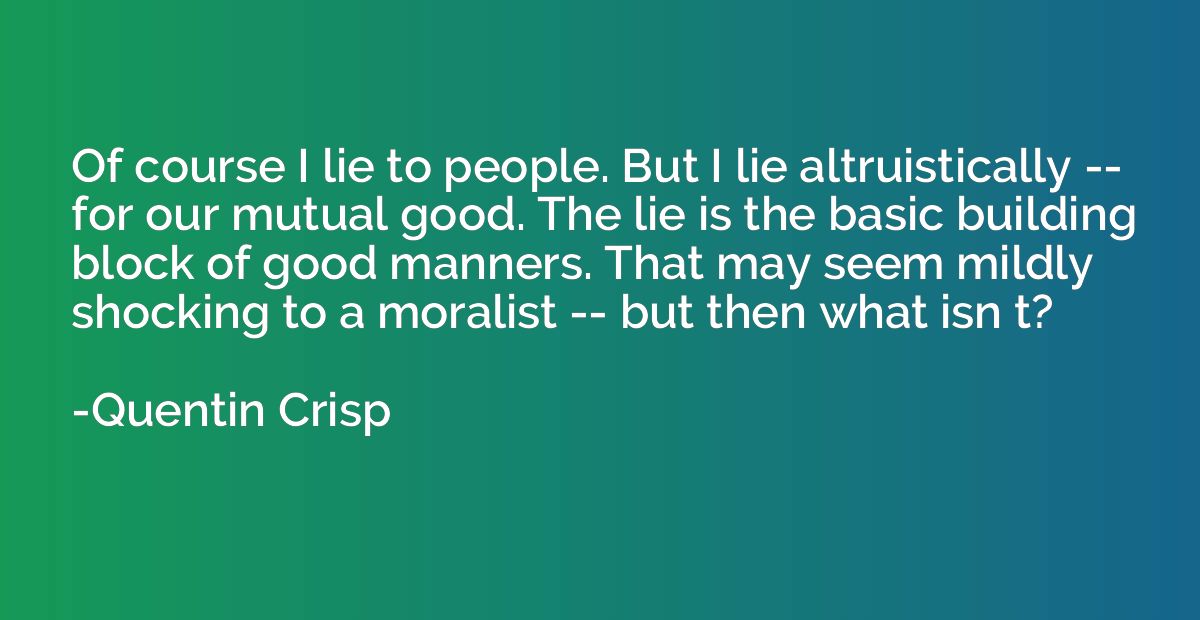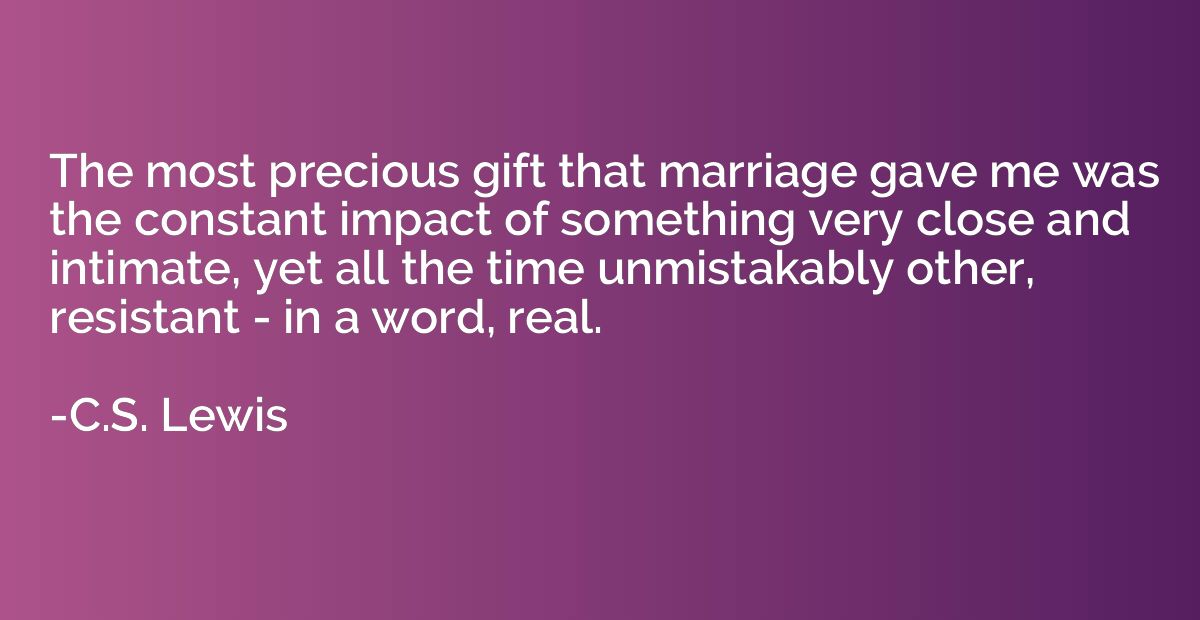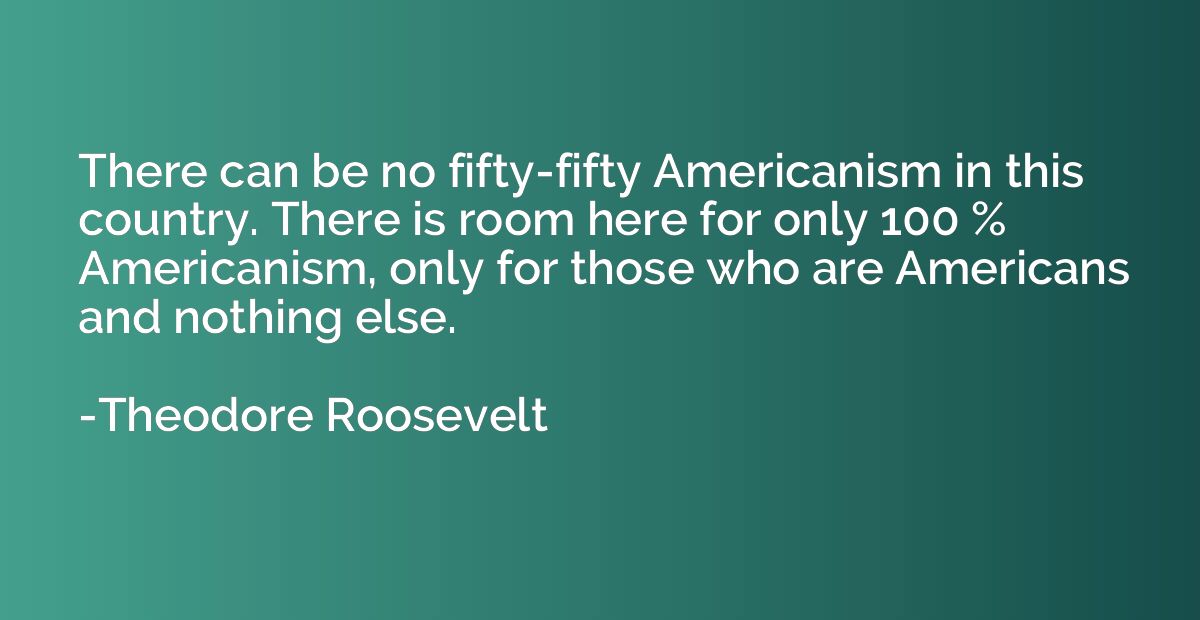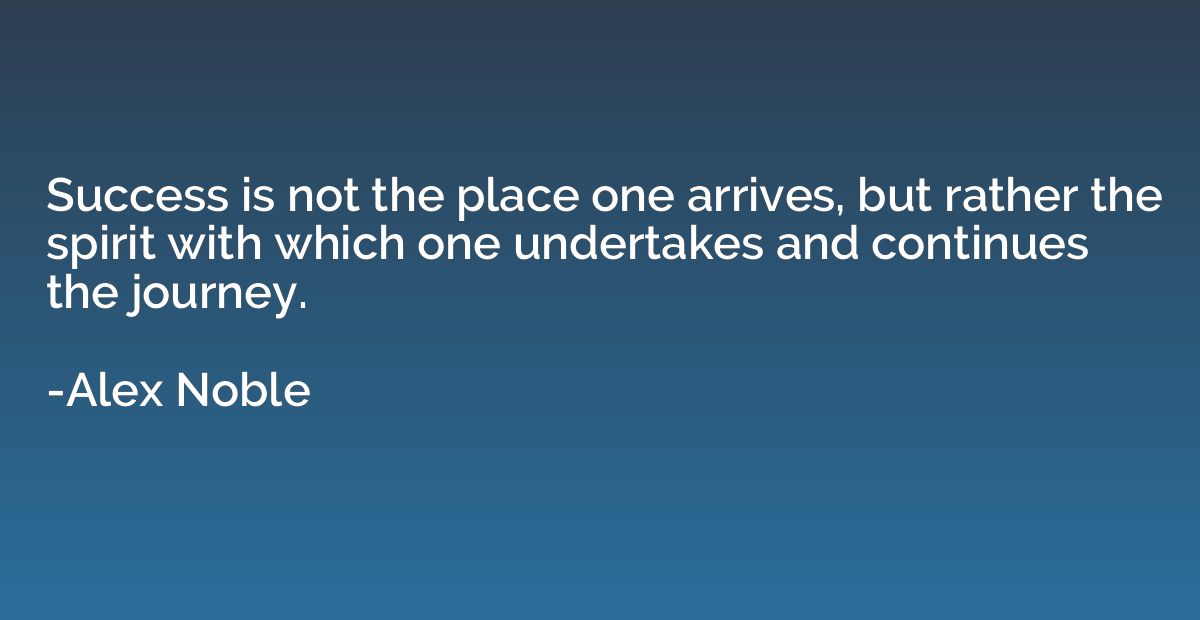Quote by Evander Holyfield
Deep down, I reckon the sweetest moment will come when it's finally all over. When, at last, I know that I can stop fighting. Of course it'll also be a little sad. The sweetest moments, y'know, always come with just a little sadness.
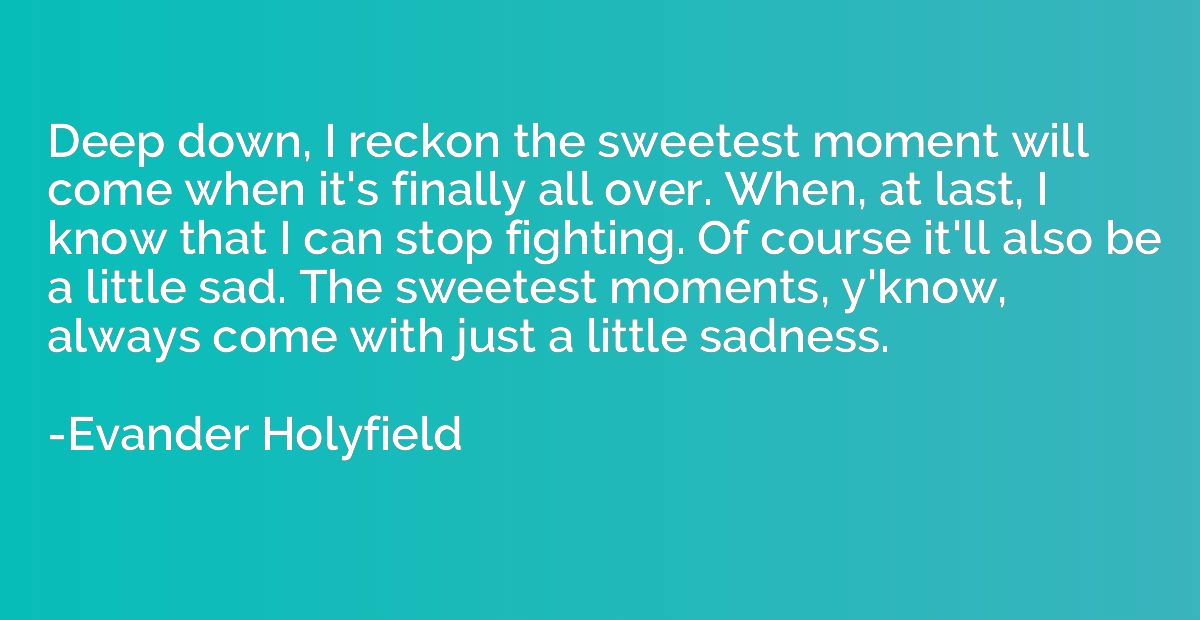
Summary
This quote reflects the bittersweet experience of reaching the end of a challenging journey. It suggests that the sweetest moment occurs when one can finally let go and cease the struggle. However, the quote also acknowledges the presence of a tinge of sadness that accompanies these sweet moments. It acknowledges that life is complex and often mixes joy and sorrow, reminding us to appreciate the beauty in the contrast between these emotions.



